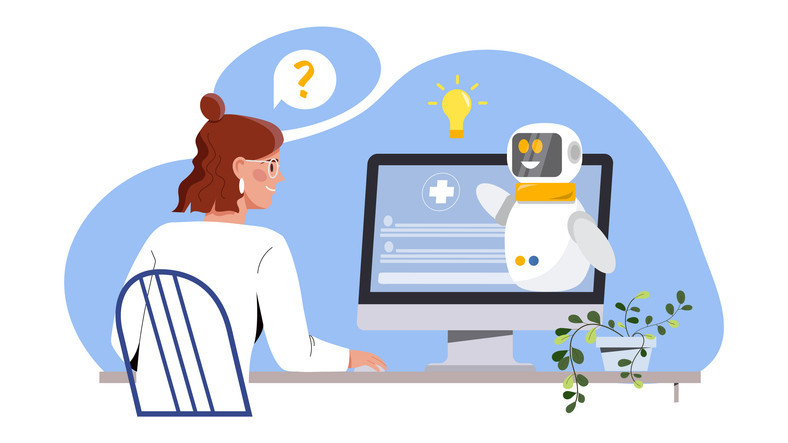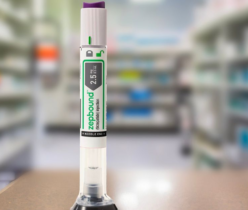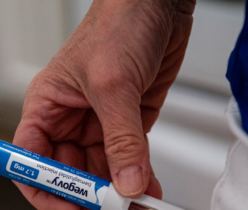Last year, titles portraying a learn about man-made consciousness (simulated intelligence) were attractive, most definitely:
ChatGPT Appraised as Better compared to Genuine Specialists for Compassion, Exhortation
The simulated intelligence will see you now: ChatGPT gives greater responses and is more sympathetic than a genuine specialist, concentrate on finds
Is simulated intelligence Better Than A Specialist? ChatGPT Beats Doctors In Sympathy And Nature Of CounselFrom the start, the possibility that a chatbot utilizing man-made intelligence could possibly produce clever responses to patient inquiries isn’t is business as usual. All things considered, ChatGPT flaunts that it breezed through a last, most important test for a Wharton MBA, composed a book in a couple of hours, and made unique music.
However, showing more compassion than your primary care physician? Oof. Prior to doling out conclusive distinctions on quality and compassion to one or the other side, we should require another glance.
What assignments is man-made intelligence taking on in medical services?
As of now, a quickly developing rundown of clinical utilizations of computer based intelligence incorporates drafting specialist’s notes, recommending analyze, assisting with perusing x-beams and X-ray sweeps, and observing continuous wellbeing information, for example, pulse or oxygen level.
Yet, the possibility that man-made intelligence created answers may be more sympathetic than real doctors struck me as astonishing — and miserable. How should even the most progressive
machine beat a doctor in exhibiting this significant and especially human temperance?
Might computer based intelligence at any point convey smart responses to patient inquiries?
It’s a fascinating inquiry.
Envision you’ve called your primary care physician’s office with an inquiry regarding one of your drugs. Later in the day, a clinician in your wellbeing group gets back to you to examine it.
Presently, envision an alternate situation: you pose your inquiry by email or message, and inside the space of minutes get a response produced by a PC utilizing computer based intelligence. How might the clinical responses in these two circumstances think about regarding quality? What’s more, how should they analyze with regards to compassion?
To respond to these inquiries, scientists gathered 195 inquiries and replies from mysterious clients of an internet based virtual entertainment webpage that were presented to specialists who volunteer to reply. The inquiries were subsequently submitted to ChatGPT and the chatbot’s responses were gathered.
A board of three doctors or medical caretakers then evaluated the two arrangements of deals with any consequences regarding quality and sympathy. Specialists were inquired “which answer was better?” on a five-point scale. The rating choices for quality were: extremely poor, poor, OK, great, or excellent. The rating choices for sympathy were: not sympathetic, marginally compassionate, tolerably sympathetic, compassionate, and exceptionally compassionate.
What did the review find?
The outcomes weren’t close at all. For almost 80% of replies, ChatGPT was viewed as better compared to the doctors.
Great or excellent quality responses: ChatGPT got these evaluations for 78% of reactions, while doctors just did as such on 22% of reactions.
Sympathetic or exceptionally compassionate responses: ChatGPT scored 45% and doctors 4.6%.Quite, the length of the responses was a lot more limited for doctors (normal of 52 words) than for ChatGPT (normal of 211 words).
Like I said, off by a long shot. All in all, were that multitude of short of breath titles suitable all things considered?
Not really quick: Significant restrictions of this simulated intelligence research
The review wasn’t intended to address two key inquiries:
Do simulated intelligence reactions offer precise clinical data and work on persistent wellbeing while at the same time keeping away from disarray or mischief?
Will patients acknowledge the possibility that questions they posture to their PCP may be replied by a bot?What’s more, it had a few serious constraints:
Assessing and looking at replies: The evaluators applied untested, emotional models for quality and compassion. Significantly, they didn't evaluate genuine precision of the responses. Nor were answers surveyed for manufacture, an issue that has been noted with ChatGPT.
The distinction long of replies: More nitty gritty responses could appear to reflect persistence or concern. In this way, higher appraisals for sympathy may be connected more to the quantity of words than genuine compassion.
Inadequate blinding: To limit predisposition, the evaluators shouldn't have know whether a response came from a doctor or ChatGPT. This is a typical exploration procedure called "blinding." Yet simulated intelligence produced correspondence doesn't generally sound precisely like a human, and the computer based intelligence answers were fundamentally longer. In this way, almost certainly, for in any event a few responses, the evaluators were not dazed.The primary concern
Might doctors at any point gain something about articulations of sympathy from simulated intelligence created replies? Perhaps. Might simulated intelligence function admirably as a cooperative instrument, producing reactions that a doctor surveys and overhauls? As a matter of fact, a few clinical frameworks as of now use computer based intelligence along these lines.
In any case, it appears to be untimely to depend on man-made intelligence replies to patient inquiries without strong verification of their precision and genuine oversight by medical care experts. This study wasn’t intended to give all things considered.
Furthermore, coincidentally, ChatGPT concurs: I inquired as to whether it could respond to clinical inquiries better than a specialist. Its response was no.
We’ll require more exploration to know when now is the ideal time to liberate the man-made intelligence genie to respond to patients’ inquiries. We may not be there yet — yet we’re drawing nearer.
Need more data about the examination? Peruse reactions formed by specialists and a chatbot, for example, replies to a worry about results subsequent to gulping a toothpick.


